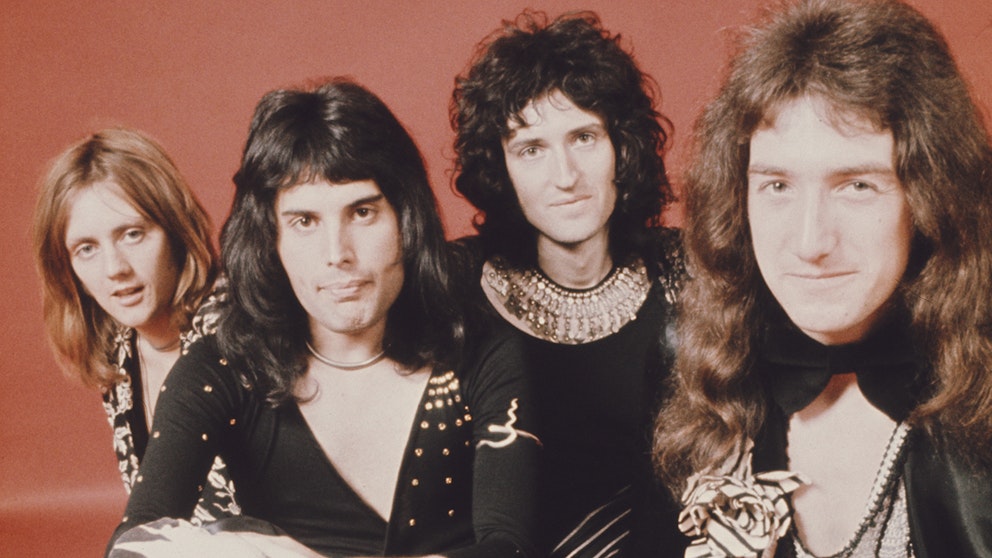Queen guitarist speaks exclusively to MOJO about revisiting the band’s debut album, Freddie Mercury’s “bloody religious” lyrics, reclusive bandmate John Deacon and more.
Home|Articles|Stories
Brian May Interviewed: “The workings of Freddie’s mind were sometimes obscure…”
Queen guitarist speaks exclusively to MOJO about revisiting the band’s debut album, Freddie Mercury’s “bloody religious” lyrics, reclusive bandmate John Deacon and more.
Queen 1973
by James McNair | Published on21st October 2024 at 9.38pm
Subscribe to our mag
RELEASED IN 1973, Queen’s debut album presented a hugely promising, if a little patchy, snapshot of the future global superstars. While overflowing with ideas and ambition, on Queen I, Freddie Mercury, Brian May, Roger Taylor and John Deacon were yet to reign in their virtuosity in service of their soon-to-be-gold standard songwriting.
This month, the album is subject to an opulent new reissue, polishing previously buried sonic jewels, restoring the originally intended running order and bringing in a raft of demos and live tracks. You can read MOJO’s review of the new, six-disc box set HERE.
On the eve of the set’s release, guitarist and joint custodian of Queen’s legacy Brian May casts his mind back to the early days of the band, revisiting their debut 50 years on and the importance of doing their music justice. “We were always precocious boys…” he tells MOJO’s James McNair.
How did it feel to revamp the sound of Queen’s debut 50 years on?
“It felt great! I’m not saying the original version was bad – it just wasn’t what we dreamed of. Freddie and John, too, were always conscious of this thing in our past which seemed like it couldn’t be fixed.”
Roger’s drum sound is a revelation. What else has been improved?
“Everything. Every instrument has been re-examined from the bottom up. The guitars were originally recorded very dry, so we’ve remedied that. I remember my dad saying, ‘There’s no ambience, Brian. I don’t feel like I’m in the room with you playing next to me.’ But we weren’t in a position to lay down the law, and we felt that if we stepped out of line we would lose the opportunity altogether. Roy Thomas Baker did an excellent job under the circumstances, but he was wedged between us young hopefuls and this management company [Trident Audio Productions] who saw us as a can of beans.”
Queen’s legacy clearly still matters to you.
“Absolutely. The passion is still there. We still get angry if things aren’t right, and it’s still fun. We recently sold our wares to Sony, of course, so we’re clearly not doing this for the money. When I pop off from this planet, I would like to know that I’ve done my best on anything that I ever touched.”
Does John Deacon still have a say?
“John still has a ‘yes’ or ‘no’ say. We get messages that he’s happy with what we’re doing, but he doesn’t want the stress of being involved creatively, and we respect that. Freddie we can’t talk to, sadly. But the four of us worked as a team for so long that Roger and I have a pretty good idea what our fellow Queen members would be saying. This thing is longer that anybody’s marriage.”
Revisiting the album, Roger has said he’s “amazed how bloody religious the lyrics are…”
“I was surprised, too. Freddie was obviously born a Parsi into the Zoroastrian faith, but he also attended a school in Zanzibar which I believe was a Christian school. The workings of Freddie’s mind were interesting and sometimes obscure. I don’t really know where his lyrics for Jesus came from any more than I know where Bohemian Rhapsody came from.”
Any plans to apply this approach to the rest of your back catalogue?
“I certainly think Queen II deserves that treatment. There are many layers on that record and there wasn’t really the technology to make that heard. I think we’ll stop there, though. By Sheer Heart Attack we had everything under our fingers.”
Are you surprised new opportunities to burnish the crown keep coming?
“I am, but you make your own opportunities, don’t you? I can get very stressed if things aren’t done properly and discussed the way they used to be. We were always precocious boys who’d say, ‘We want the record promoted this way, we want these images used…’, and that’s how it should be. The sculptor doesn’t deliver that statue and then say, ‘OK, you can chip away at it now.’”
